If you have a cat or two (or maybe even more!), you know that they love nibbling on herbs, specifically cat grass! But are there other herbs you can grow for your cats that are safe and they'll also enjoy? The answer is yes! These cat herbs are the best herbs you can grow, and your cats will thank you for them! Keep reading to learn how to grow cat herbs in your garden!
How to Grow Cat Herbs in Your Garden or in a Pot
You can grow the following cat herbs in pots or just randomly in your garden, depending on where your cats roam. Please note that these herbs are 100% safe for your cats!
Cat Grass
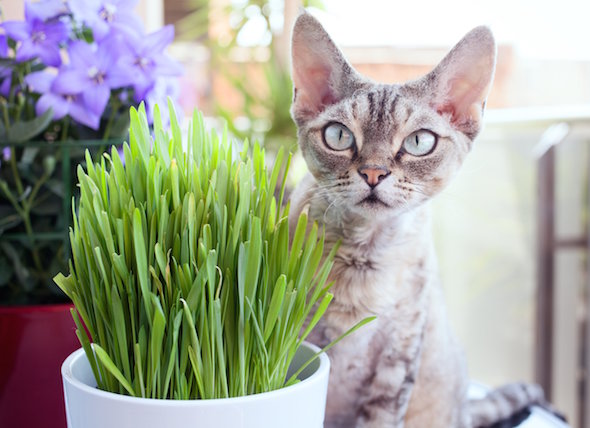
Cat grass is by far the most popular cat herb, and you also may see it in your local grocery store! This type of crass contains vital nutrients for your cats, specifically fiber which aids in digestion and can also help with hairballs. Plant the cat grass seeds in well draining soil and in full sun. Sow each seed about 1/4 inch apart and 1/2 deep. Germination occurs quickly (within 7 days), and should be ready to consume once it reaches 2 inches in height!
Cat Thyme
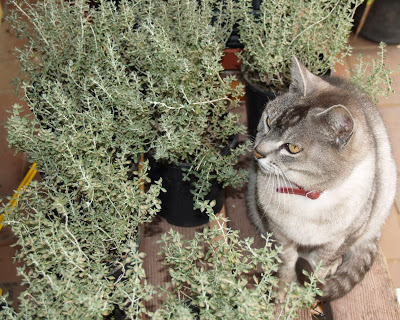
Although cat thyme looks like actual thyme, it is not. This herb has a strong, musty odor which cats seem to just love! In fact, some cats even seem to prefer it over catnip, but the odor can be a little strong for humans, so we don't recommend you plant it very close to your home! This evergreen perennial is hardy in zone 5 through 11. For best results, grow cat thyme from cuttings in full sun.
Catmint
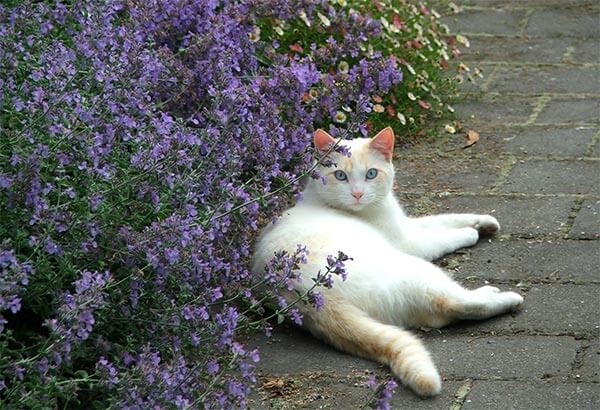
Although catmint is in the mint family, it is not actually mint. This type of mint is related to catnip, and can have the same effects. This herbaceous perennial is hardy in zones 3 through 8. This plant is actually beautiful to grow in your garden, and will grow to about 3-4′. It prefers full sun, but can also tolerate shade.
Catnip
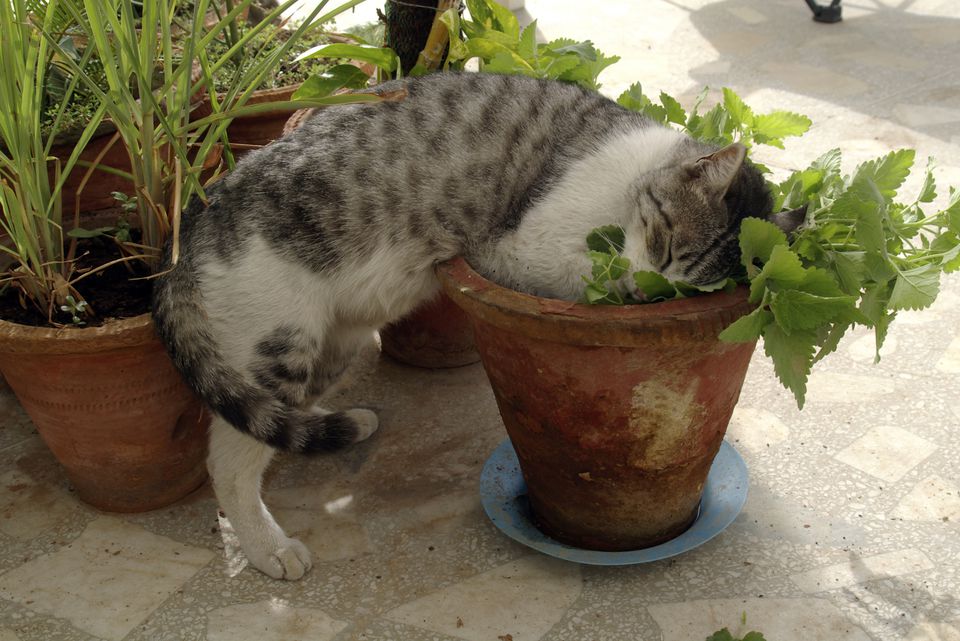
This most popular cat herb drives cats up the walls (literally) due to the chemical nepetalactone. This herbaceous perennial is hardy in zones 3 through 9. Plant in full sun and remove dead flowers before they seed. You can grow catnip from seeds or cuttings, and germination should occur within 7-10 days.
Lemongrass
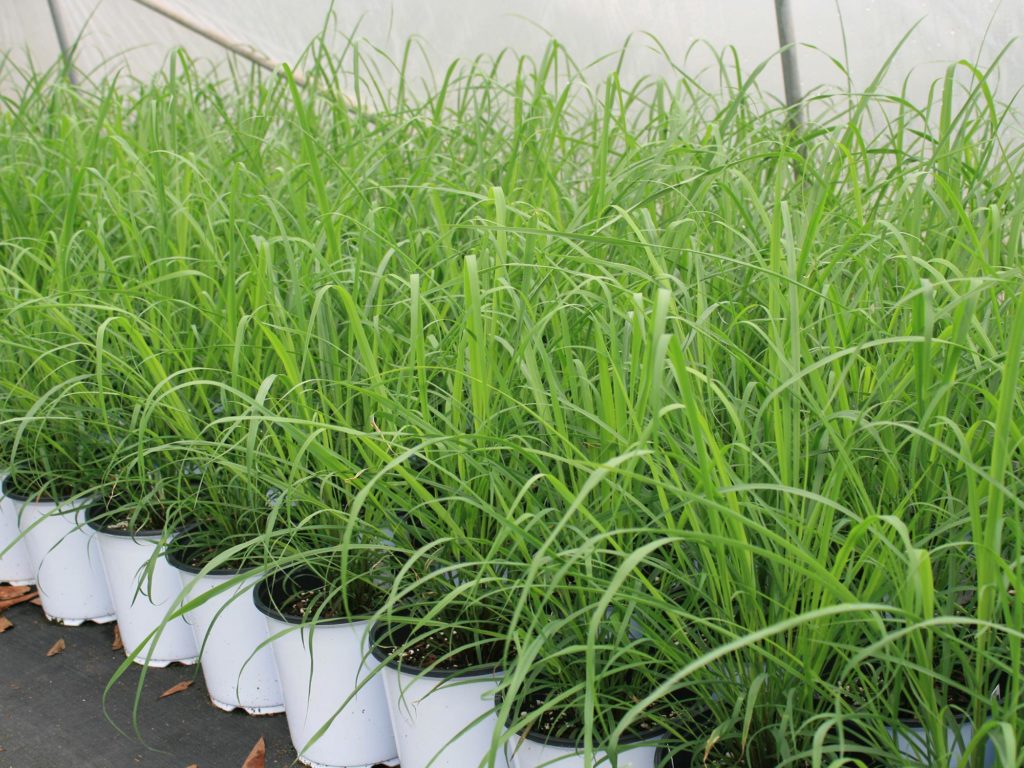
Lemongrass is not just for human consumption – cats love it too! They love its scent, plus it aids in digestion as well! This tropical perennial is hardy through zone 9. North of zone 9, you'll have to move it indoors once temperatures drop. Lemongrass needs full sun, and seeds should be started about 8 weeks before the first frost date.
Valerian
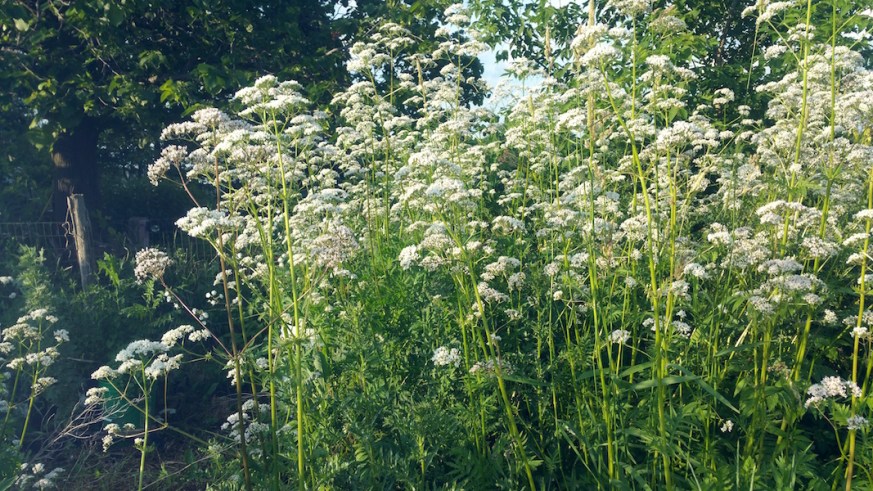
Very similar to catnip, valerian acts as a calming agent for cats. Hardy through zones 4 to 8, this herb loves rich soil and full sun. While its flowers smell beautiful (like vanilla), the leaves have a very foul odor, so you may want to plant a little ways from your home. Surface sow the seeds and do not cover – simply press the seeds firmly into the soil. Germination should occur within 1-2 weeks.
Mint
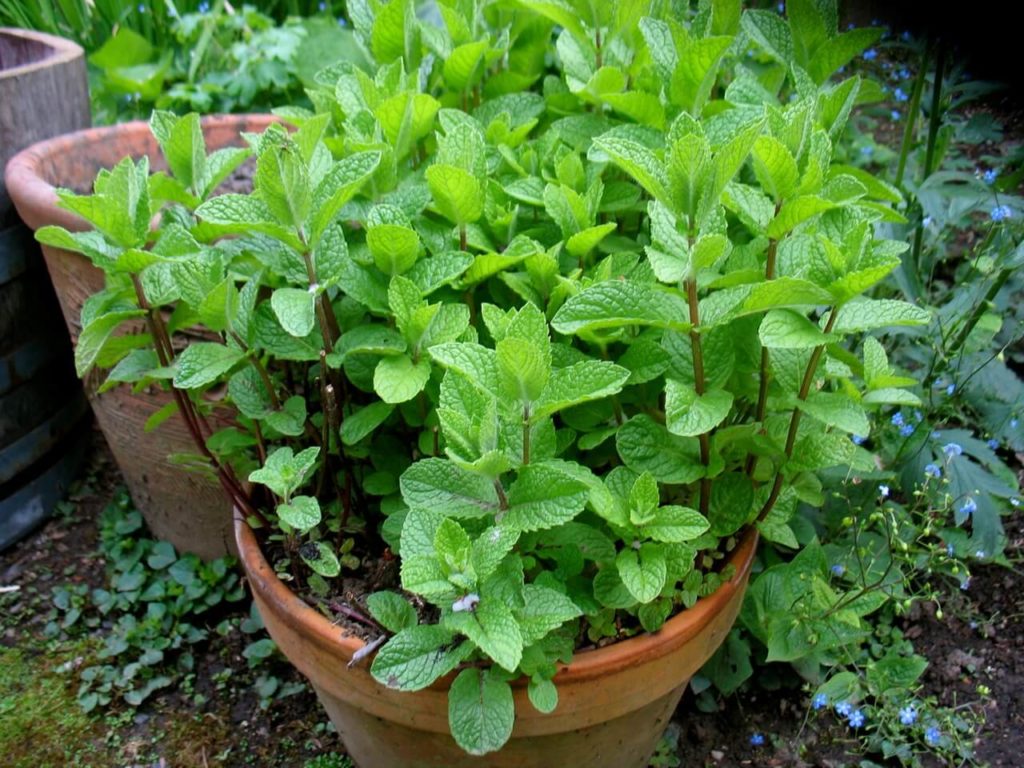
Curiously enough, cats love the scent of mint and will really enjoy rubbing up against it! Mostly, they'll just nibble on the leaves, but keep an eye out, as too much mint may cause digestive distress! Hardy in zones 3 through 7, these herbs prefer partial to full sun. Be sure to keep soil moist at all times, as mint detests dry soil! Germination should occur within 12-16 days.
Lavender
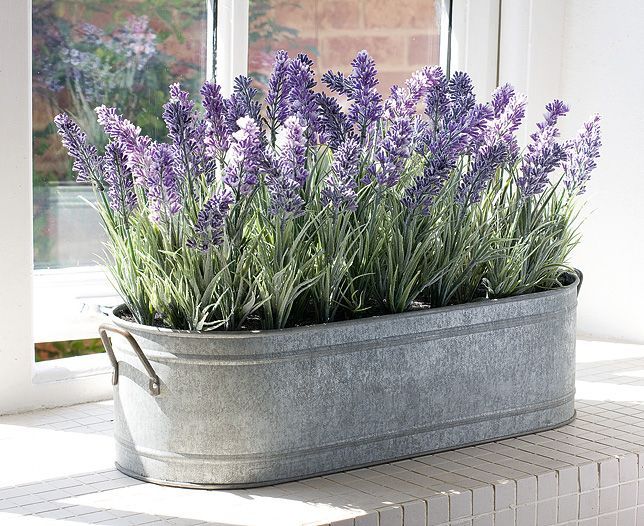
This perennial is great to grow in the garden because not only does it smell and look great, but it's also drought tolerant. Lavender can be difficult to grow from seed, so we recommend you grow lavender from cuttings! These herbs prefer full sun, and your cats will enjoy the calming effects just as much as we do!
So now that you know how to grow cat herbs, it's time to roll up your sleeves and get to planting!
Like this post? Share, Pin, and Comment Below 🙂
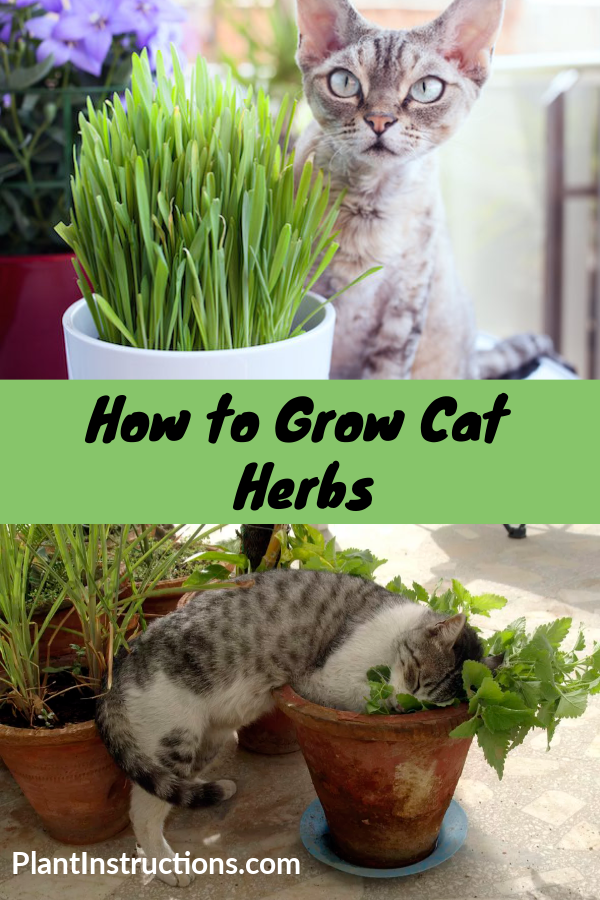


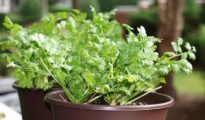

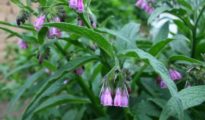
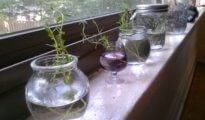
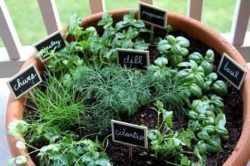
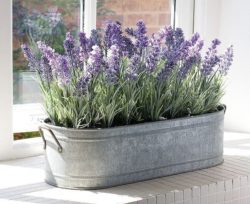
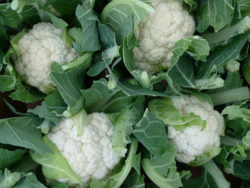
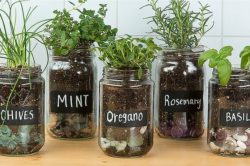

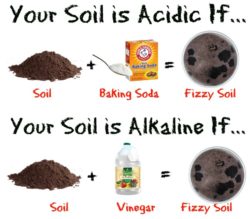
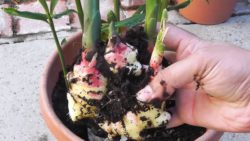
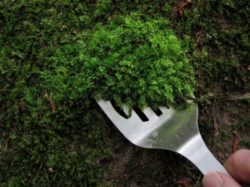





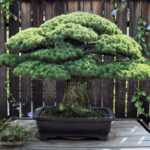
I love this! Imagine a little garden corner just for the kitties, with all these. Thanks 🙂
Please correct this article! According to the ASPCA list both lemongrass and lavender are toxic to cats (and dogs). Please fix this before a pet parent unintentionally harms their fur baby.
https://www.aspca.org/pet-care/animal-poison-control/toxic-and-non-toxic-plants/lemon-grass
https://www.aspca.org/pet-care/animal-poison-control/toxic-and-non-toxic-plants/lavender
Thank you Jessica, did not know that! I believe with lemongrass though, after doing some research, it’s mainly lemongrass essential oil, while the actual plant itself should be ok.
Please be aware that the ASPCA lists lavender as toxic to cats.